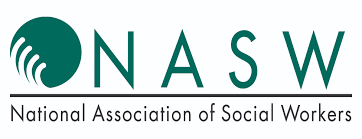Description:
Transgender and gender-diverse (TGD) individuals experience disproportionately high rates of mental health concerns, including anxiety, depression, and suicidal ideation. Research shows that access to gender-affirming care significantly reduces these risks and supports positive psychosocial outcomes. Since 2021, however, a growing number of U.S. states have introduced or enacted legislation restricting access to gender-affirming medical and mental health services, creating complex ethical and legal challenges for social workers—including social workers in states that do not have such restrictive laws. This interactive webinar will examine these emerging challenges and offer practical guidance for ethically serving TGD clients in increasingly restrictive environments. Participants will explore key issues related to client autonomy, confidentiality and privacy, documentation practices, interprofessional relationships, legal compliance, risk management, and equitable access to care. Through case examples and discussion, social workers will develop strategies to uphold ethical standards while navigating conflicting legal mandates and advocating for client well-being.
Learning objectives:
Describe how recent laws restricting access to gender-affirming care affect transgender and gender-diverse youth and adults.
Critically analyze ethical dilemmas related to legislative restrictions to gender-affirming care in relation to the principles of beneficence, nonmaleficence, autonomy, justice, integrity, consent/assent, and cultural humility.
Brainstorm options in relation to advocacy, referrals, psychoeducation, record keeping, legal compliance, and problem-solving for clients who are unable to access gender-affirming care in their states.
This webinar specifically addresses concerns related to serving transgender and gender-diverse individuals, including individuals with gender dysphoria. It will also address cultural humility and concerns specific to people with limited financial means. This webinar is eligible for CEUs in the following categories: Cross-cultural practice, Professional ethics.
Speaker's bio: Allan Barsky, JD, MSW, PhD is a professor with Florida Atlantic University’s Sandler School of Social Work in Boca Raton. He received his master’s in social work degree from Yeshiva University in New York City and his doctorate and law degrees from University of Toronto, Canada. His book credits include Ethics and Values in Social Work, Clinicians in Court, Essential Ethics for Social Work Practice, Conflict Resolution for the Helping Professions, and Interprofessional Practice with Diverse Populations. His accolades include the “FAU Scholar of the Year Award” (2020), FAU’s Alumni Association Impact in Teaching Award” (2024), and NASW’s “Excellence in Ethics Award,” and CSWE’s “Lifetime Achievement in Social Work Education Award (2025). For further information, please see https://barsky.org/publications.
Please note: This webinar will be hosted in a Zoom Meeting room. Attendees will receive an email with details to join one day prior to the webinar. To receive CE credit, attendees must attend the full duration of the webinar; partial credit is not available. Please read our virtual programs and conferences participant expectations here. Social Work Continuing Education Credit: CE credit is provided by the NASW-MA Chapter; CEUs have been approved for Massachusetts and Rhode Island attendees. If you are not licensed in Massachusetts and/or Rhode Island, please check with your state social work licensing board if they accept NASW-MA Chapter approved CEUs.

 Adding Registration, Please wait...
Adding Registration, Please wait...





